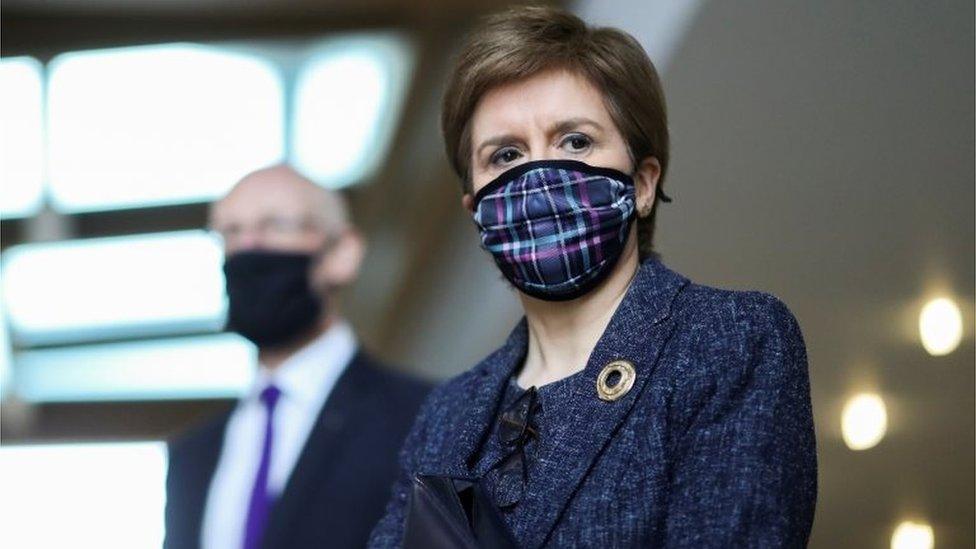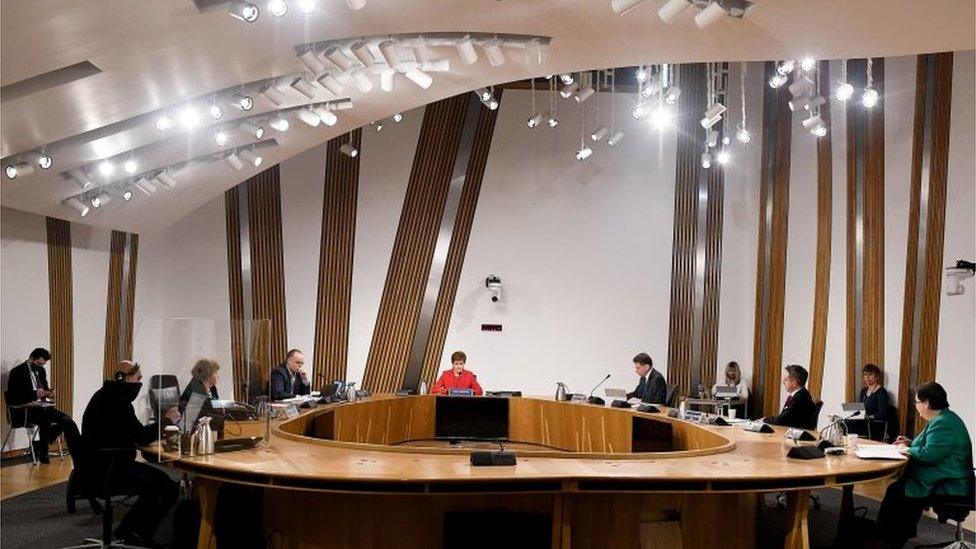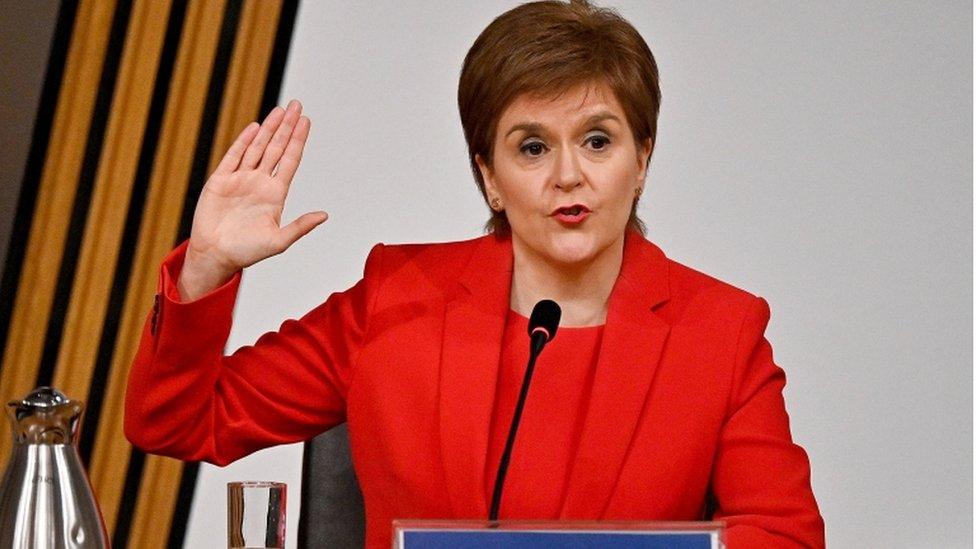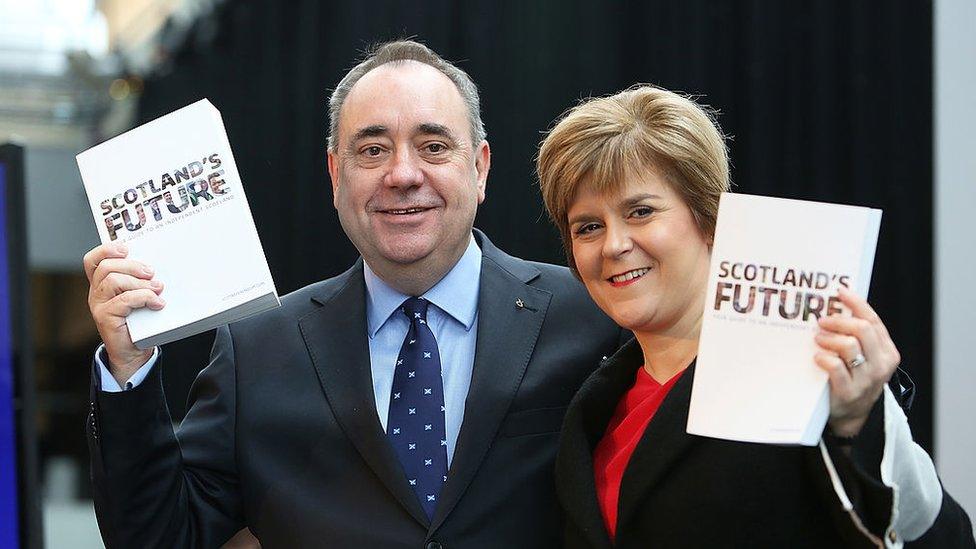Alex Salmond inquiry affects more than just Nicola Sturgeon's future
- Published

As I write, nine members of the Scottish Parliament are still in a virtual meeting, discussing, voting, likely indeed arguing, over their conclusions on the future of the First Minister Nicola Sturgeon.
Their inquiry is part of the machinations of a long running dispute between one of the most successful political duos this country has seen for decades, as the first minister and her predecessor, and very much former friend, have come to blows. Remind yourself what the very sorry saga is all about here.
What we know from inside that committee room is that the MSPs have voted by a margin of one vote, 5-4, that Nicola Sturgeon misled them.
Before we see the final report, which may not come for a while, it's hard to know what caveats they have applied, precisely what the circumstances are that they describe. The details will matter.
Ms Sturgeon's team is already trying to dismiss the findings as a partisan attack, a predictable political play from a committee of MSPs, designed to damage the first minister, whose popularity they envy, who has been almost untouchable for so long.
The findings they really fear are from the separate Hamilton Inquiry, being carried out by an independent lawyer in to whether she broke the rules that govern ministers' behaviour.
If she's found to have done that, convention suggests she would have to resign.
It is clear that Nicola Sturgeon has no intention of giving into opposition demands out there to get her to quit on the basis of the MSPs' conclusions.
Of course this is intensely political, it's not just about who said what, when and where.

Ms Sturgeon gave evidence to the committee earlier this month
But a public finding from a parliamentary committee that she misled them can't just be brushed away.
It's a serious accusation from a group of senior politicians after an investigation that looked at thousands of pages of evidence.
It's a huge distraction just before the official start of vital Scottish elections. It underlines the bitter lines drawn inside the SNP during this saga.
And it's damaging to the reputation of one of the country's most important politicians, whose personal standing is key not just to what happens in Scotland, but what happens to the whole of the UK.
The SNP has been all powerful under Ms Sturgeon's leadership. And her personal profile has been a vital part of creating a powerful political sense, although importantly never a certainty, that another referendum on Scottish independence was somehow inevitable.

The SNP hope to hold another referendum on independence
If the SNP clinches a majority in May, it's her intention to use that to claim a mandate for another ballot. (Remember, it is also the UK government's firm intention to say no, which is, as things stand, its legal right.)
But in turn, anything that tarnishes her, could damage the SNP's standing in those May elections.
And anything that harms her credibility, chips away at the sometimes lazy political sentiment, that the events of the last few years have set Scotland firmly on a path out of the UK.
The arguments of a group of politicians won't settle all of this.
But what they decide is one part of the overall wrangle over the future of the union itself.
Related topics
- Published19 March 2021

- Published23 March 2021

